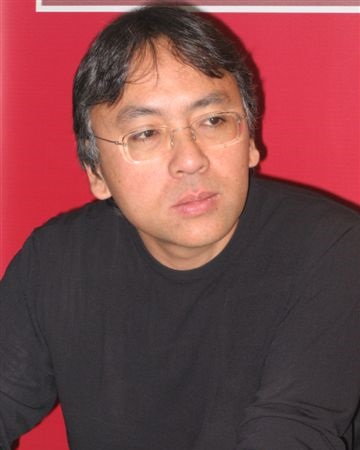Obras
Un artista del mundo flotante
Kazuo IshiguroFrases célebres de Kazuo Ishiguro
An Artist of the Floating World
Kazuo Ishiguro: Frases en inglés
“There was another life that I might have had, but I am having this one.”
On growing up in England, having left Japan at age 5. Conversation with , The Writer http://www.writermag.com/, volume 114, number 5, May 2001, collected in Conversations with Kazuo Ishiguro, p. 189 https://books.google.com/books?id=lvuteIrz7JUC&pg=PA189&dq=%22there+was+another+life+that+i+might+have+had,+but+I%E2%80%99m+having+this+one%22
Interviews
Contexto: I have a sense of having just left without saying goodbye, and of this whole other world just kind of fading away. … I have the feeling of this completely alternative person I should have become. There was another life that I might have had, but I am having this one.
Fuente: The Remains of the Day (1989), p. 244
Contexto: It is now some twenty minutes since the man left, but I have remained here on this bench to await the event that has just taken place – namely, the switching on of the pier lights. As I say, the happiness with which the pleasure-seekers gathering on this pier greeted this small event would tend to vouch for the correctness of my companion’s words; for a great many people, the evening is the most enjoyable part of the day. Perhaps, then, there is something to his advice that I should cease looking back so much, that I should adopt a more positive outlook and try to make the best of what remains of my day. After all, what can we ever gain in forever looking back and blaming ourselves if our lives have not turned out quite as we might have wished? The hard reality is, surely, that for the likes of you and I, there is little choice other than to leave our fate, ultimately, in the hands of those great gentlemen at the hub of this world who employ our services. What is the point in worrying oneself too much about what one could or could not have done to control the course one’s life took? Surely it is enough that the likes of you and I at least try to make our small contribution count for something true and worthy. And if some of us are prepared to sacrifice much in life in order to pursue such aspirations, surely that is in itself, whatever the outcome, cause for pride and contentment.
“You say you’re? Sure that you’re in love? How can you know it? You think love is so simple?”
Fuente: Never Let Me Go
“All children have to be deceived if they are to grow up without trauma.”
Fuente: Never Let Me Go
“She always wanted to believe in things.”
Fuente: Never Let Me Go
“Indeed — why should I not admit it? — in that moment, my heart was breaking.”
Fuente: The Remains of the Day
“Poor creatures. What did we do to you? With all our schemes and plans?”
Fuente: Never Let Me Go
“I'm more interested in what people tell themselves happened rather than what actually happened.”
Dunn, Adam. " In the land of memory: Kazuo Ishiguro remembers when http://web.archive.org/web/20010625162920/http://www.cnn.com/2000/books/news/10/27/kazuo.ishiguro/" cnn.com Book News. 27 Oct. 2000 (archived from the original http://www.cnn.com/2000/books/news/10/27/kazuo.ishiguro/ on 2001-06-25).
Interviews
Contexto: More fundamentally, I'm interested in memory because it's a filter through which we see our lives, and because it's foggy and obscure, the opportunities for self-deception are there. In the end, as a writer, I'm more interested in what people tell themselves happened rather than what actually happened.
“Your life must now run the course that's been set for it.”
Fuente: Never Let Me Go
“It was like there was some parallel universe we all vanished off to where we had all this sex.”
Fuente: Never Let Me Go
